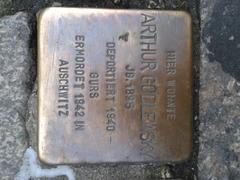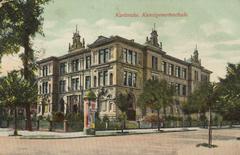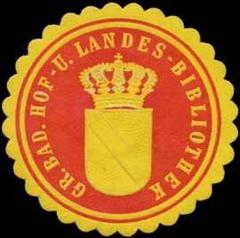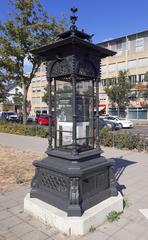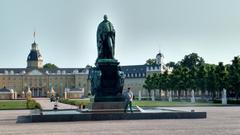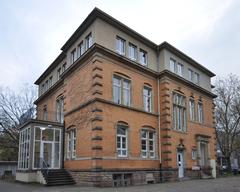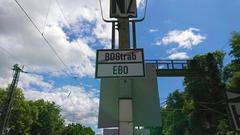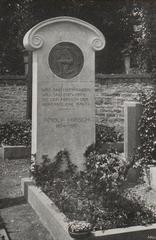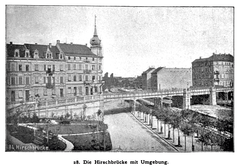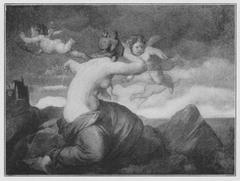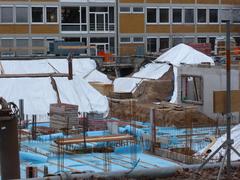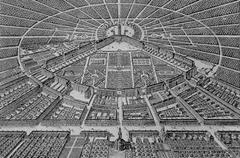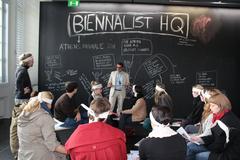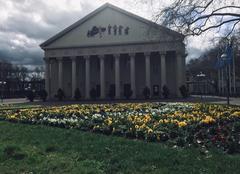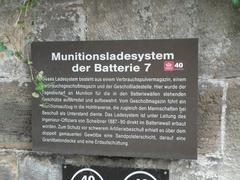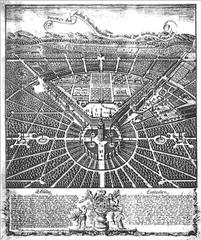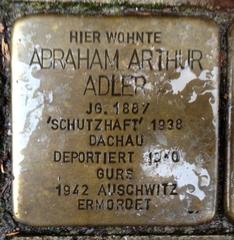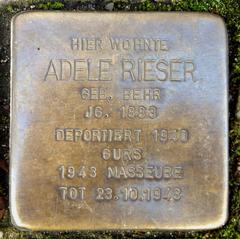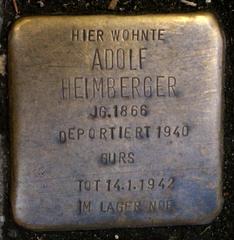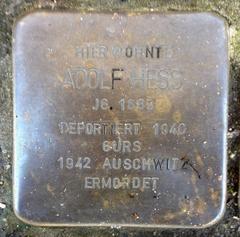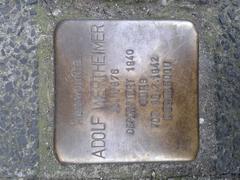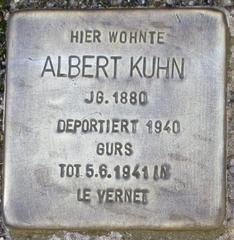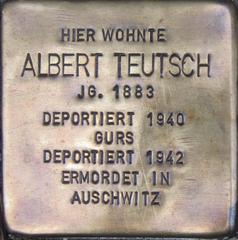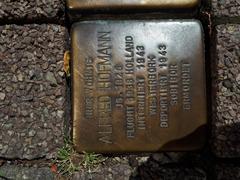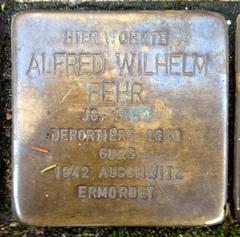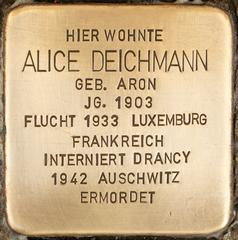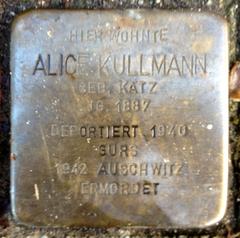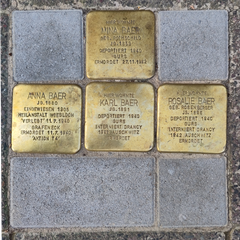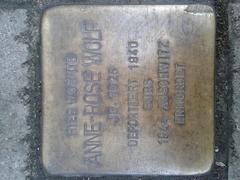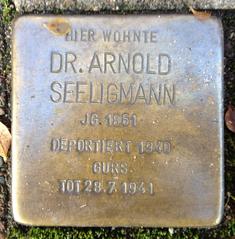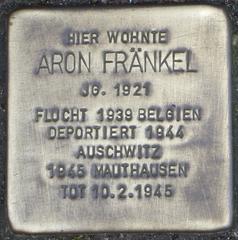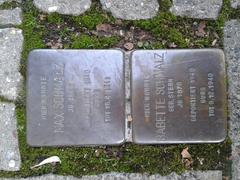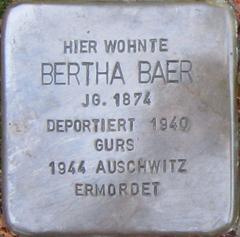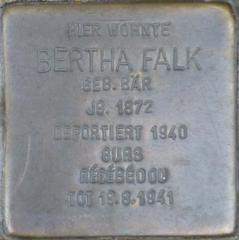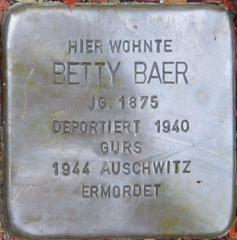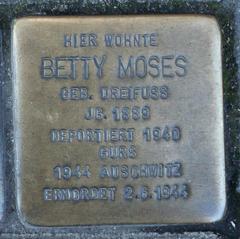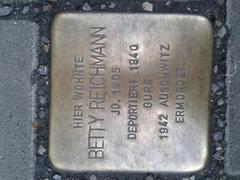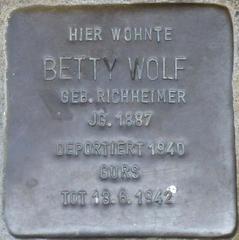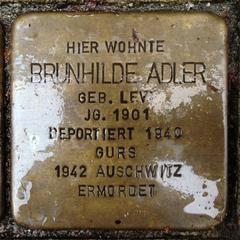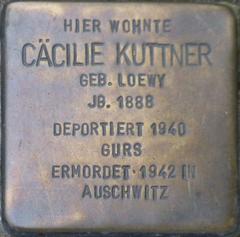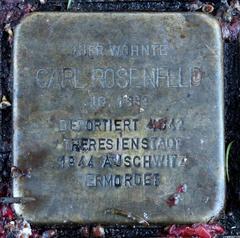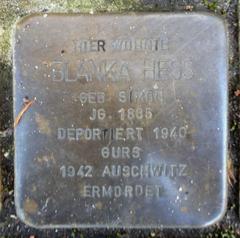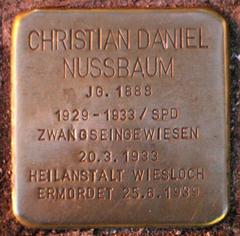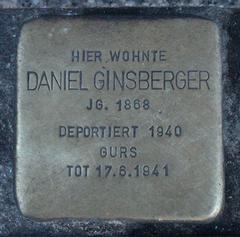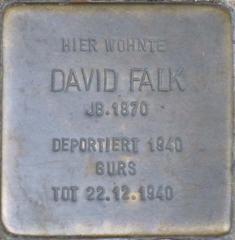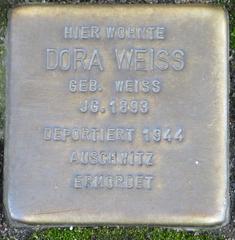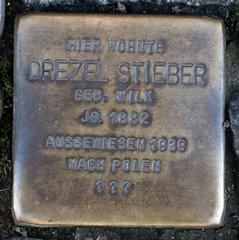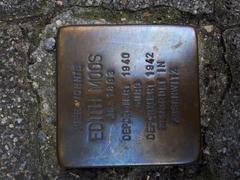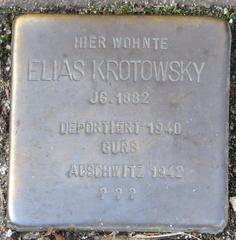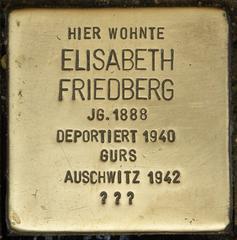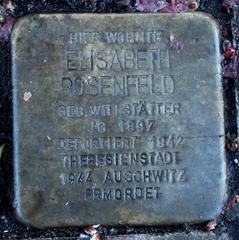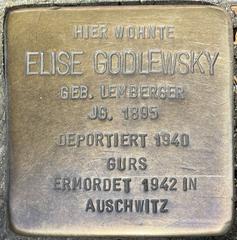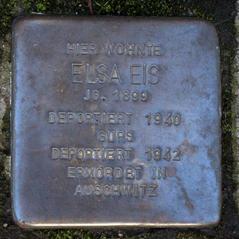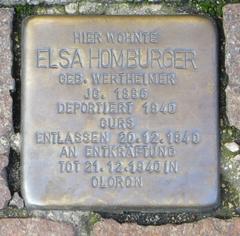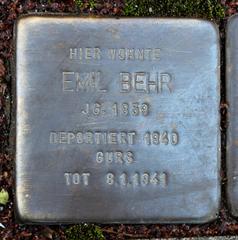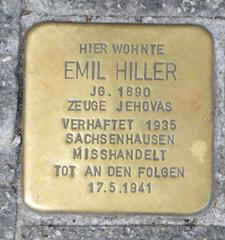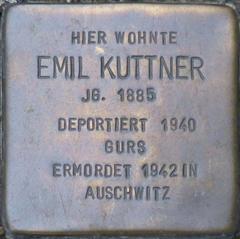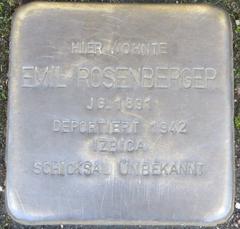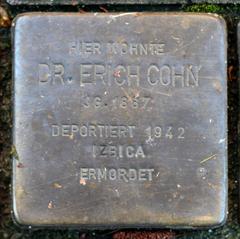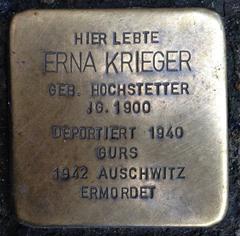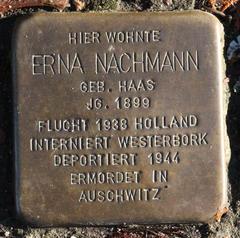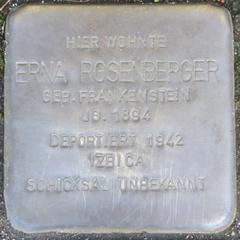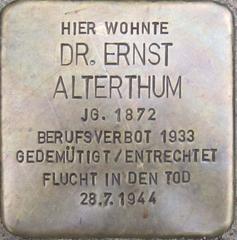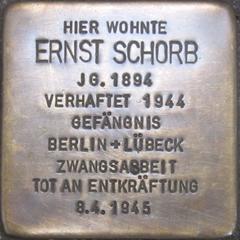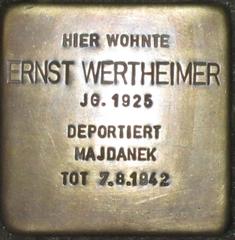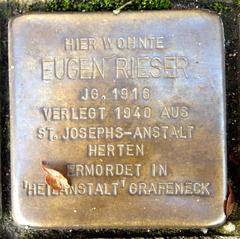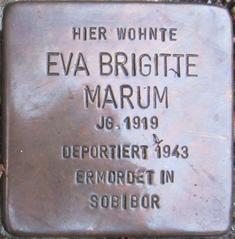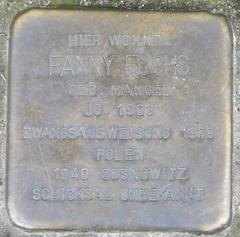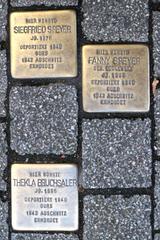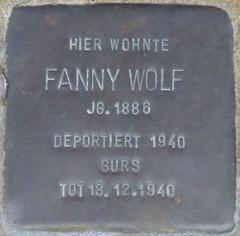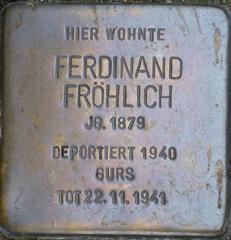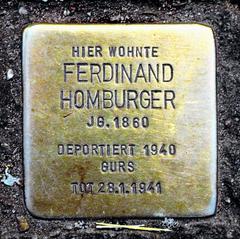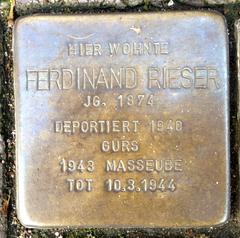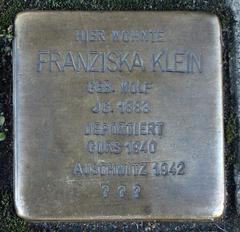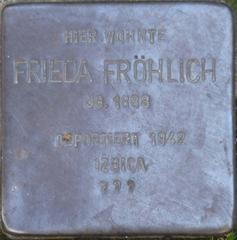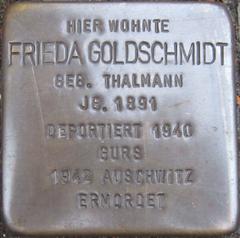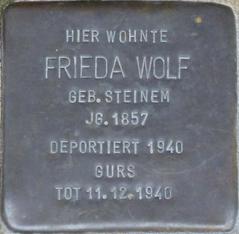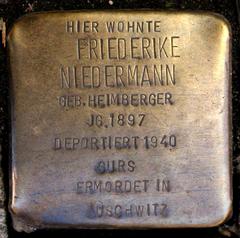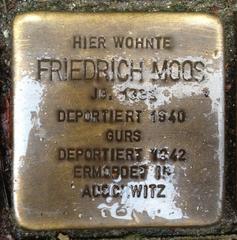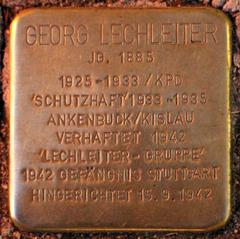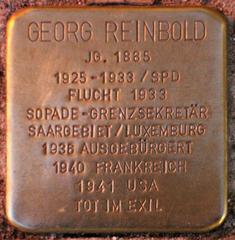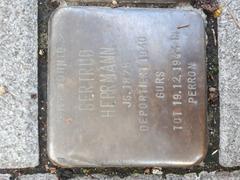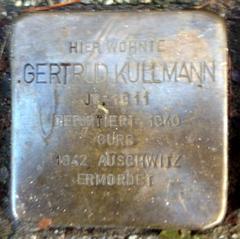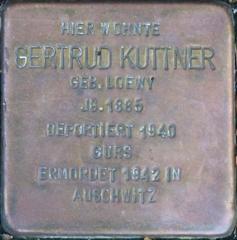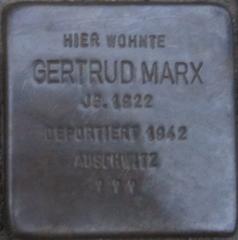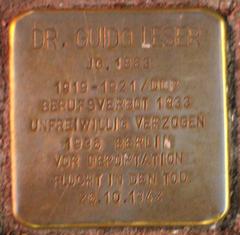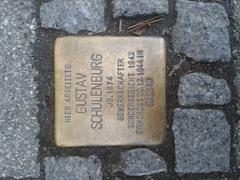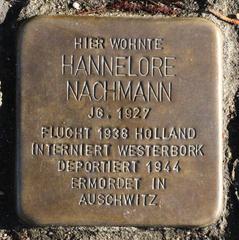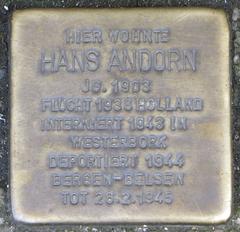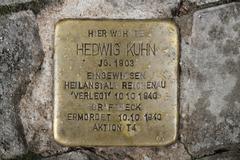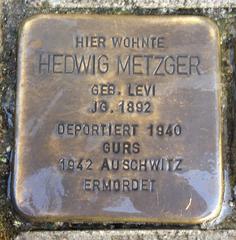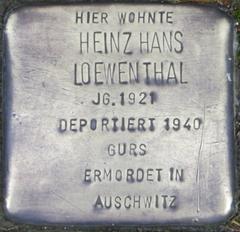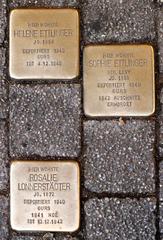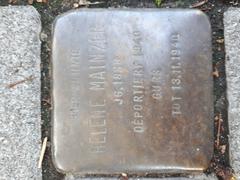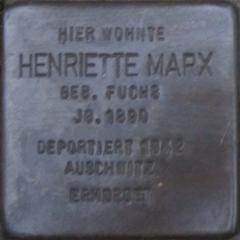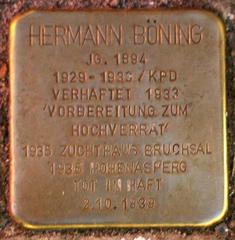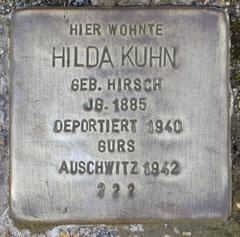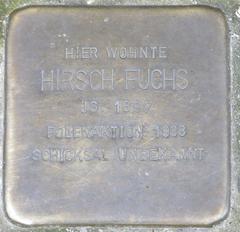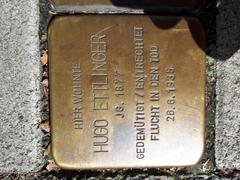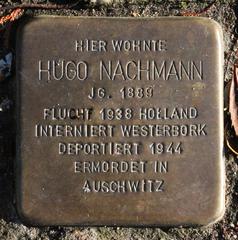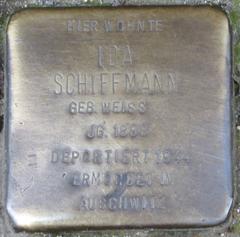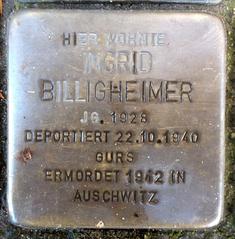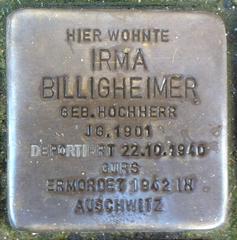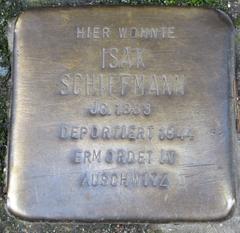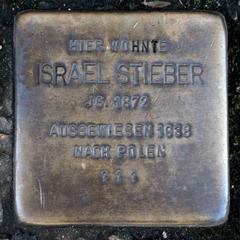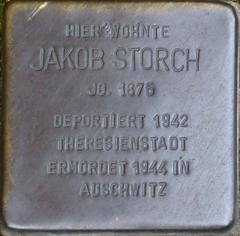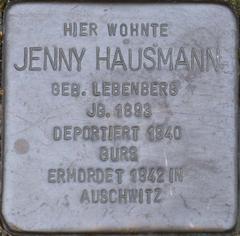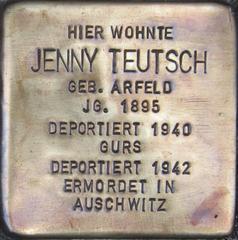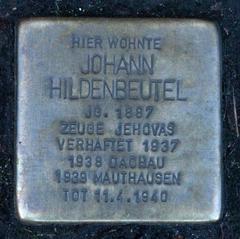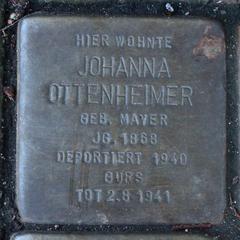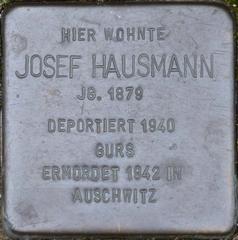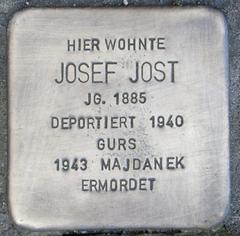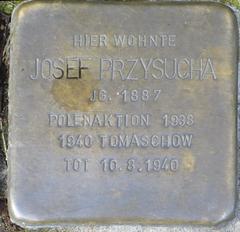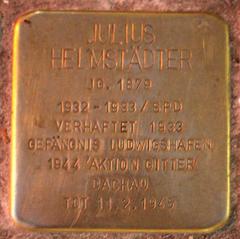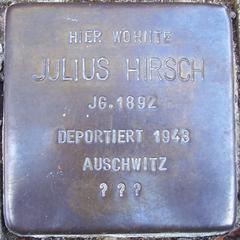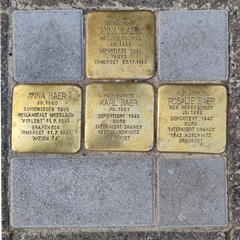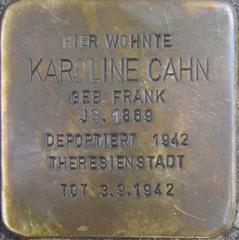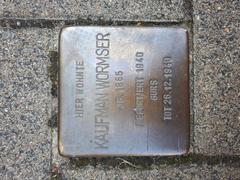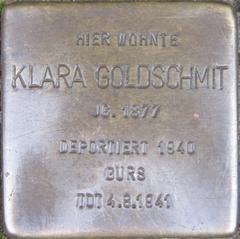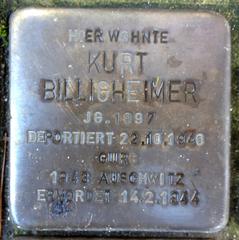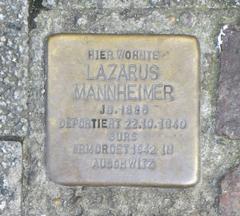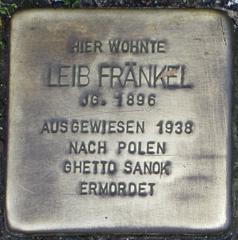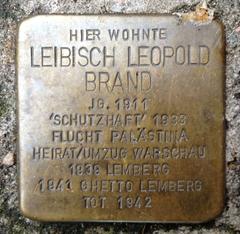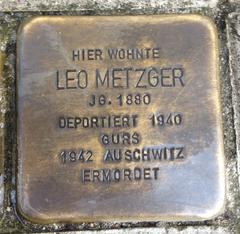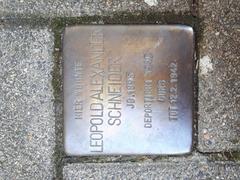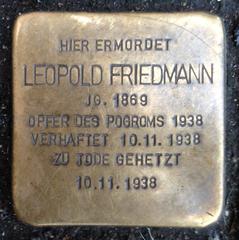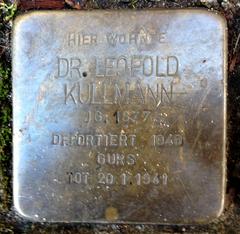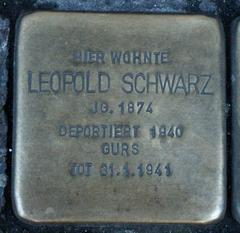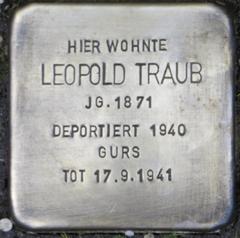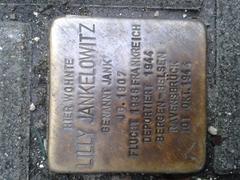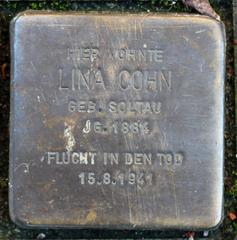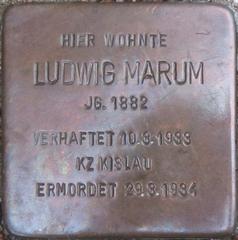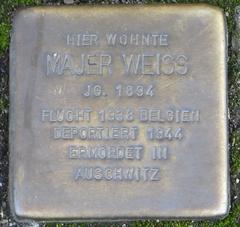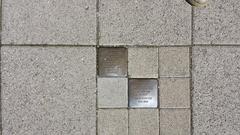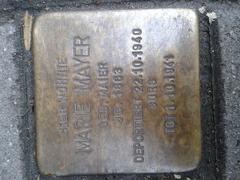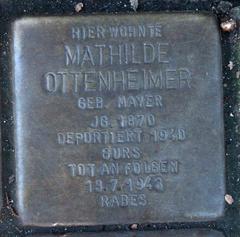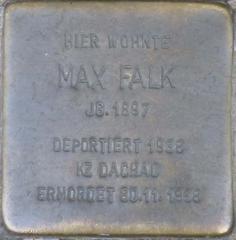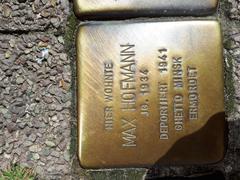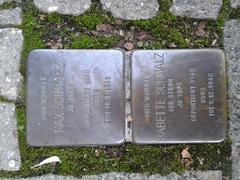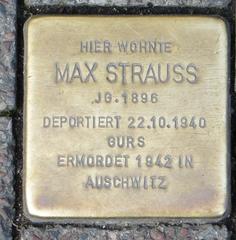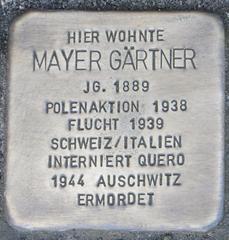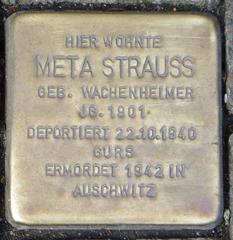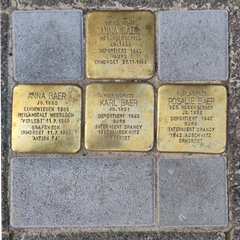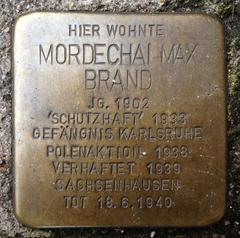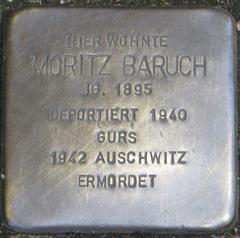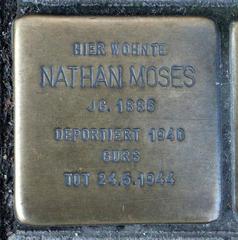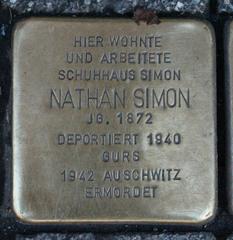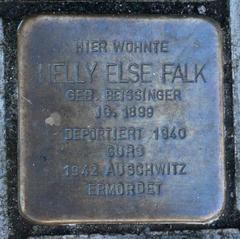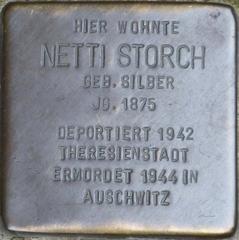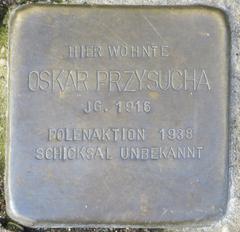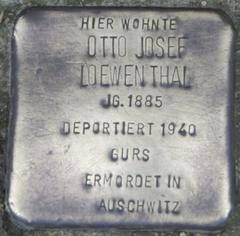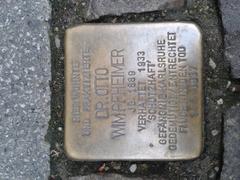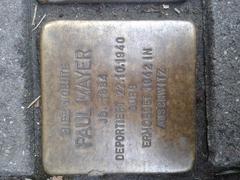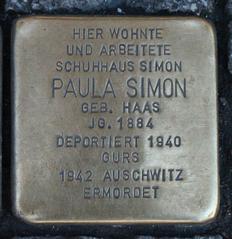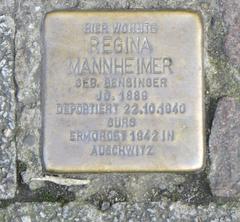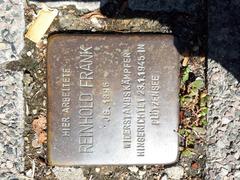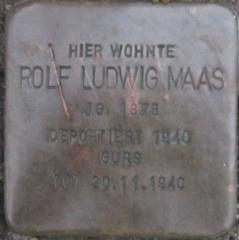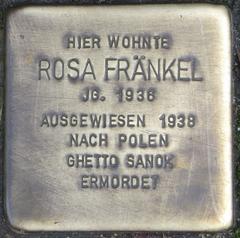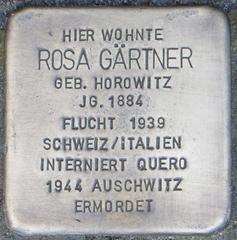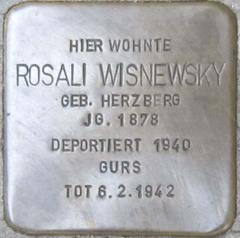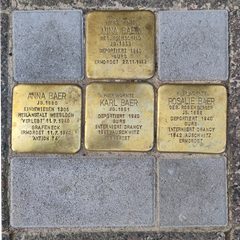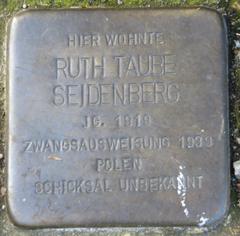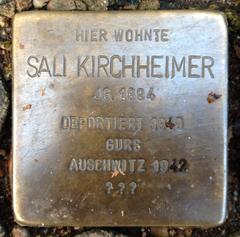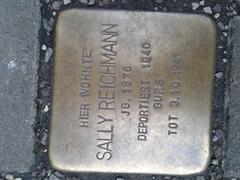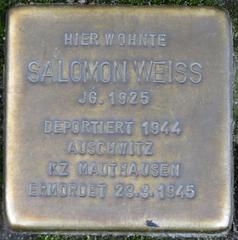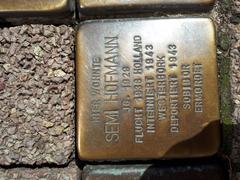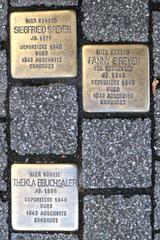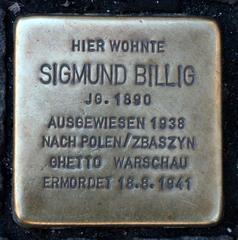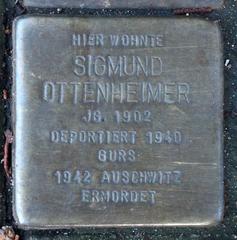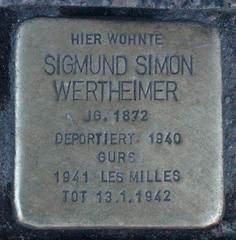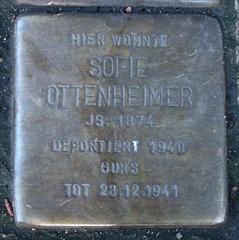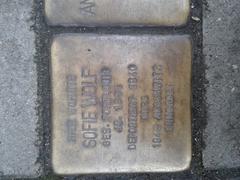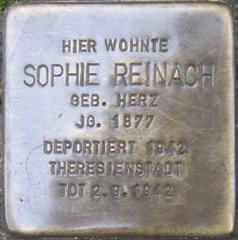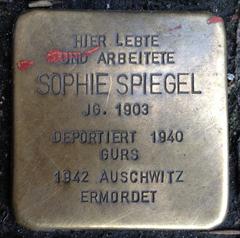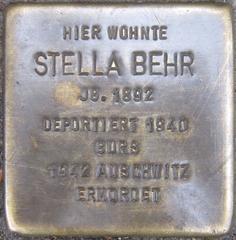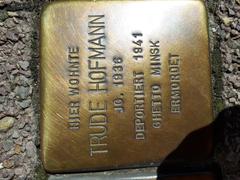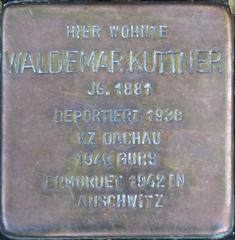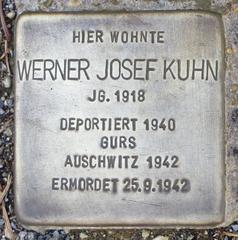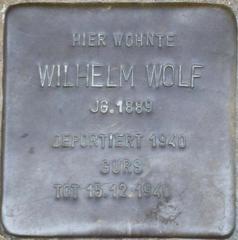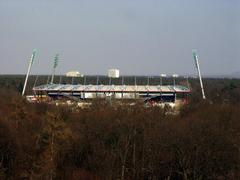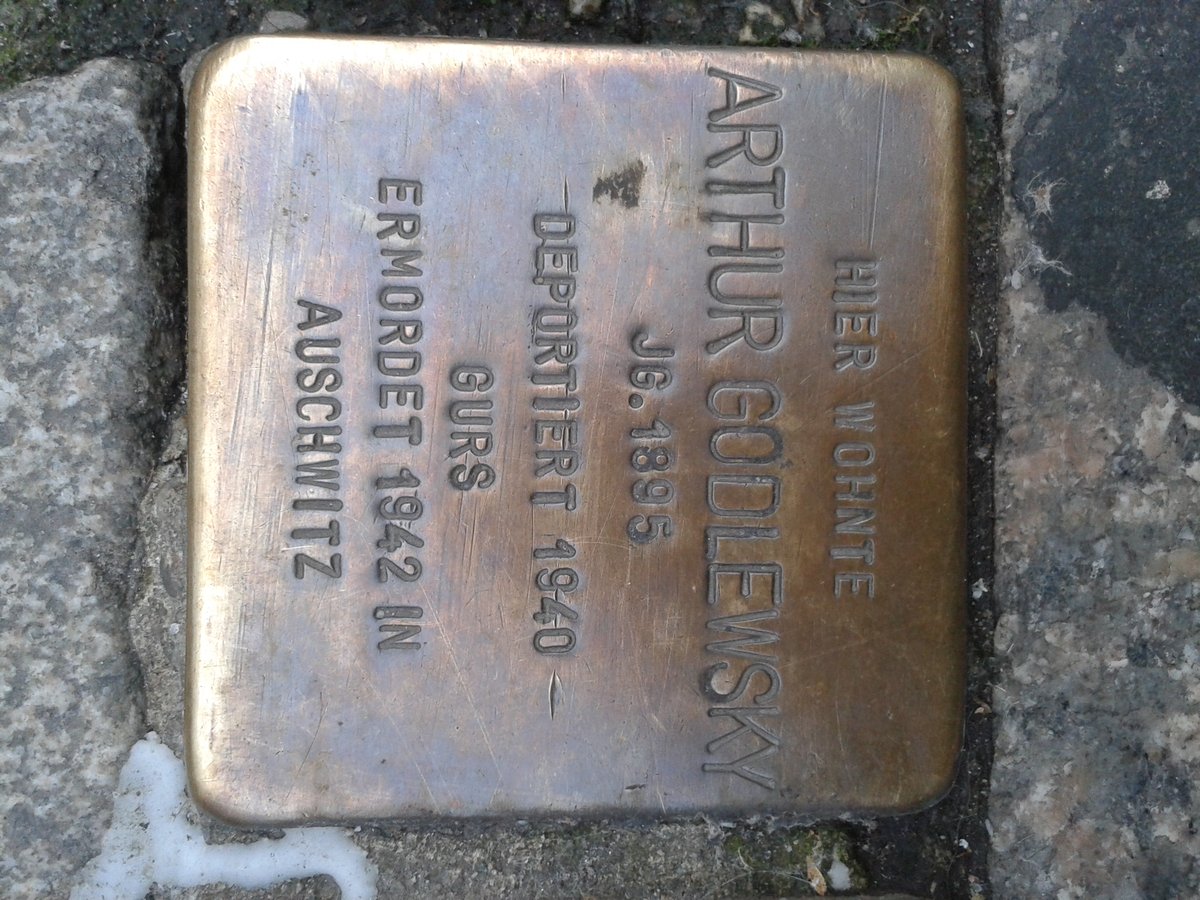
Stolperstein Arthur Godlewsky Karlsruhe: Visiting Hours, Tickets, and Historical Significance
Date: 14/06/2025
Introduction
The Stolperstein dedicated to Arthur Godlewsky in Karlsruhe, Germany, is a powerful reminder of the personal stories behind the Holocaust. These “stumbling stones,” initiated by artist Gunter Demnig in the 1990s, are small brass plaques embedded in sidewalks across Europe. Each plaque commemorates an individual victim of Nazi persecution at their last freely chosen residence. With over 116,000 Stolpersteine installed in 31 countries, including more than 260 in Karlsruhe, these decentralized memorials bring remembrance into daily urban life (Stolpersteine.eu; Stolpersteine Karlsruhe).
Arthur Godlewsky (1892–1940) was a Jewish cantor, teacher, and community leader. His Stolperstein at Pfinzstraße 84, Karlsruhe, marks the place where he once lived, inviting reflection on his contributions and the profound tragedies of the Holocaust (Prague Views; Gedenkbuch Karlsruhe). This guide offers essential visitor information, historical context, and tips for experiencing this meaningful memorial.
About Arthur Godlewsky and His Stolperstein
Arthur Godlewsky was born in 1892 and became a respected Jewish cantor, religious teacher, and community leader. He dedicated his life to Jewish education and spiritual guidance before being targeted by the Nazi regime. His story, like those of so many, was marked by persecution, deportation, and loss.
The Stolperstein at Pfinzstraße 84, Karlsruhe, stands as a testament to Arthur’s life and the broader Jewish experience during the Holocaust. The plaque is inscribed with his name, birth year, and fate, transforming a city sidewalk into a site of memory and reflection (Stolpersteine Karlsruhe; Gedenkbuch Karlsruhe).
Location, Visiting Hours, and Accessibility
- Address: Pfinzstraße 84, Karlsruhe, Germany
- Visiting Hours: Open-access, 24/7. As a public memorial embedded in the sidewalk, it can be visited at any time.
- Accessibility: The site is located in a residential area accessible by foot, public transport, or car, with nearby parking options. The sidewalk is generally accessible, but visitors with mobility concerns should consult local maps or the Karlsruhe Tourism Office for specific accessibility information.
Tickets and Entry
No ticket or reservation is required. Stolpersteine are freely accessible public memorials.
Nearby Attractions
Visiting the Arthur Godlewsky Stolperstein offers an opportunity to explore other significant sites in Karlsruhe:
- Karlsruhe Synagogue: A central site for understanding local Jewish history.
- Badisches Landesmuseum: Exhibits on Karlsruhe’s wartime history and Jewish community (Badisches Landesmuseum).
- Karlsruhe Palace and Gardens: A historic landmark within walking distance.
- Other Stolpersteine: Numerous Stolpersteine throughout Karlsruhe offer further opportunities for reflection (Stolpersteine Karlsruhe).
Tips for Visitors
- Wear comfortable shoes for walking and exploring the area.
- Visit during daylight for optimal visibility.
- Bring a cloth to gently clean the Stolperstein, a traditional and respectful act.
- Consider leaving a small stone or flower in accordance with Jewish mourning customs.
- Photography is permitted but should be done respectfully.
- Combine your visit with a guided walking tour for deeper historical context; check with local organizations or the tourism office.
Frequently Asked Questions (FAQ)
Q: What is a Stolperstein?
A: Stolpersteine are small brass plaques embedded in sidewalks to commemorate victims of Nazi persecution at their last chosen place of residence. (Prague Views)
Q: Where is Arthur Godlewsky’s Stolperstein?
A: It is located at Pfinzstraße 84, Karlsruhe. The Stolpersteine Karlsruhe website provides a searchable directory.
Q: Are there set visiting hours or tickets required?
A: No. Stolpersteine are public memorials accessible at any time without tickets.
Q: Are guided tours available?
A: Yes, local organizations and the Karlsruhe Tourism Office offer guided and self-guided tours focusing on Stolpersteine and Jewish heritage sites.
Q: Is the site accessible for people with disabilities?
A: The Stolperstein is installed in a public sidewalk. Most areas are accessible, but check specific routes or contact the tourism office for details.
The Broader Context: Stolpersteine in Karlsruhe
Karlsruhe has over 260 Stolpersteine, each a silent witness to individual stories of persecution and loss. These memorials mark homes and workplaces, making remembrance a part of daily life. The project’s decentralized nature ensures that history is not relegated to museums but is encountered on the city’s streets (Stolpersteine Karlsruhe; Stolpersteine.eu).
Schools and community groups actively participate in research and maintenance, fostering a culture of remembrance. Annual events, such as Holocaust Remembrance Day, often include cleaning Stolpersteine and holding ceremonies.
Visuals
For images and further details, see:
When visiting, look for the distinctive brass plaque embedded in the pavement.
Ethical Considerations
- Respect the site: Do not stand on or obstruct the stone.
- Be mindful of others: Maintain a quiet and respectful atmosphere, especially if others are present for remembrance.
- Leave the site as you found it: Take care not to damage the plaque or surrounding area.
Enhance Your Experience
- Download the Audiala app for guided tours and audio content on Stolpersteine and other historical sites in Karlsruhe.
- Engage in community remembrance activities: Look out for cleaning events or ceremonies, especially around Holocaust Remembrance Day.
- Share your visit on social media to raise awareness and promote remembrance.
Conclusion and Call to Action
The Stolperstein for Arthur Godlewsky in Karlsruhe is not just a historical marker—it is a call to remember, reflect, and uphold the dignity of all. By visiting, participating in remembrance activities, and sharing these stories, you contribute to the enduring legacy of Holocaust memory and the fight against intolerance.
We encourage you to include this site in your Karlsruhe itinerary, explore other memorials, and use resources like the Audiala app for an enriched historical experience. Your respectful engagement ensures that the lessons of history remain alive for future generations.
Sources and Official Links for Further Reading
- Stolpersteine.eu, 2024, Artist Gunter Demnig
- Stolpersteine Karlsruhe Official Site
- Prague Views, “Stolpersteine (Stumbling Stones)”
- Gedenkbuch Karlsruhe, Arthur Godlewsky Entry
- Karlsruhe Tourism Office
- Traces of War, Stolperstein Pfinzstraße 84
- Audiala App
